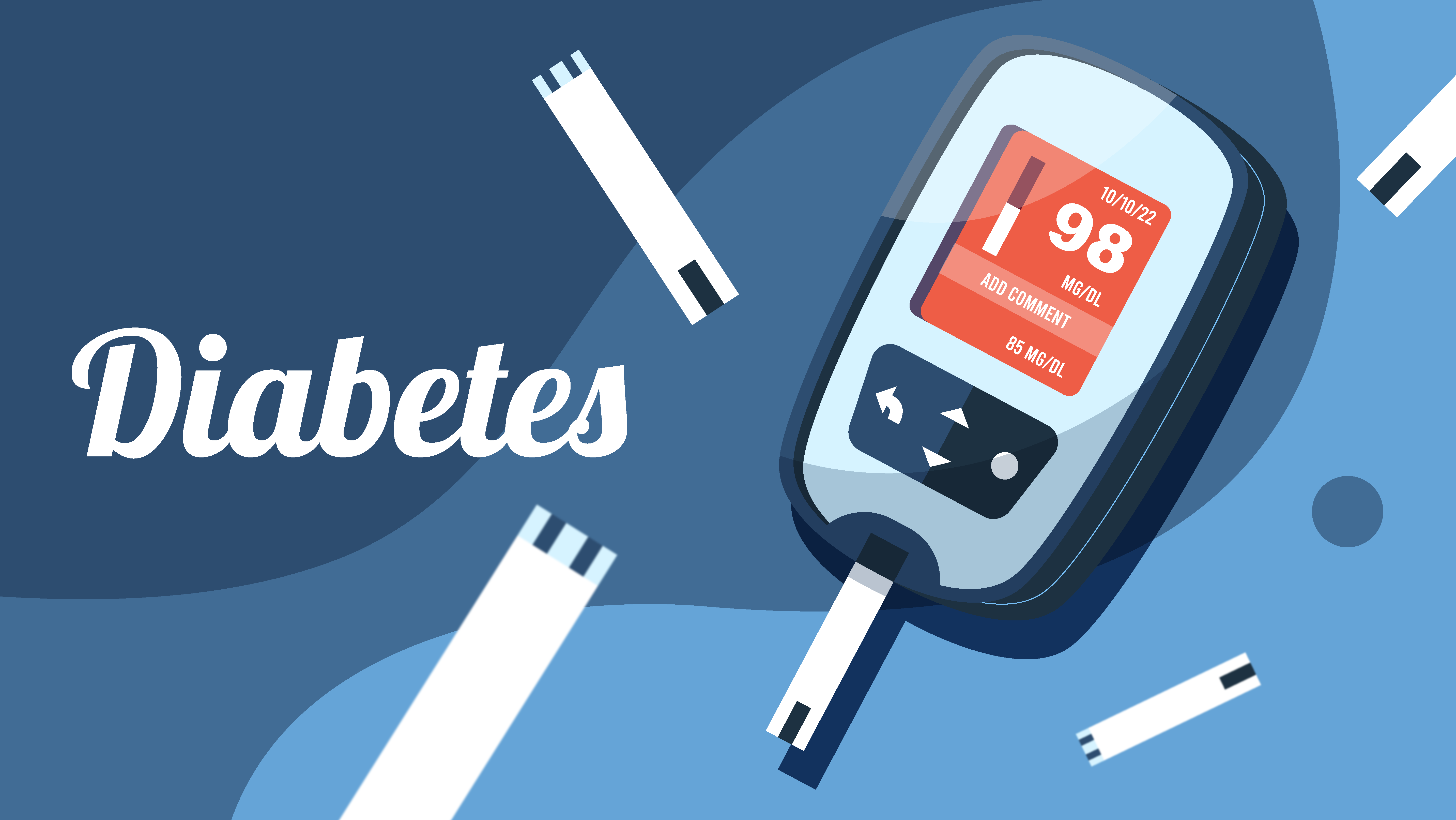
Diabetes
A lifelong condition that causes a person’s blood sugar level to become too high.
There are 2 main types of Diabetes:
Type 1: where the body’s immune system attacks and destroys the cells that produce insulin.
Type 2: where the body does not produce enough insulin or the body’s cells do not react to insulin.
Type 2 diabetes is far more common than type 1.
Prediabetes: Many people have blood sugar levels above the normal ranges, but not high enough to be diagnosed as diabetes. This is called pre-diabetes. If you are a pre-diabetic, your chances of developing into full-blown diabetes are increased.
WHEN TO SEE A DOCTOR:
If you experience the following symptoms of diabetes:
- Feeling very thirsty
- Peeing more frequent- especially at night
- Feeling very tired
- Weight loss
- Frequent thrush infections
- Slow healing of cuts and wounds
RISK FACTORS FOR DIABETES DEVELOPMENT
- Weight – The more fatty tissue you have, the more resistant your cells becomes to insulin
- Family history
- Heart Disease
- High blood pressure
- High fat and carbohydrate diet
- High alcohol intake
- Prediabetes
- High blood triglycerides (fat) levels
- Age
- Gestational diabetes
- Polycystic ovary syndrome
DIAGNOSING DIABETES
Type 2 Diabetes is often diagnosed following a blood or urine test for something else unless you have symptoms. If you have diabetes, the doctor would explain the blood result, diagnosis and treatment recommendation.
Generally, the doctor would discuss:
- What diabetes is?
- What does high blood sugar mean for your health?
- Whether you need to take medicine
- Your diet and exercise
- Your lifestyle – for example, alcohol and smoking
COMPLICATIONS OF DIABETES
- Heart disease and stroke
- Loss of feeling and pain (nerve damage)
- Foot problems – like sores and infections
- Vision loss and blindness
- Miscarriage and stillbirth
- Problems with your kidneys
Controlling your blood sugar level and having regular diabetes check-ups is the best way to lower your risk of complications.
Diabetes is serious and should be treated properly. Although diabetes cannot yet be cured it can be controlled and in some cases, it goes into remission.
The successful control is likely to involve lifestyle changes that will have enormous health benefits and allow a person to continue their normal day-to-day life.
Related Post
Ramadan and Oral Health
Ramadan & Oral Health To help clear all [...]
Diabetes
Diabetes A lifelong condition that causes a person’s [...]
Post Partum Care
Post Partum Care Begins immediately after childbirth. [...]




